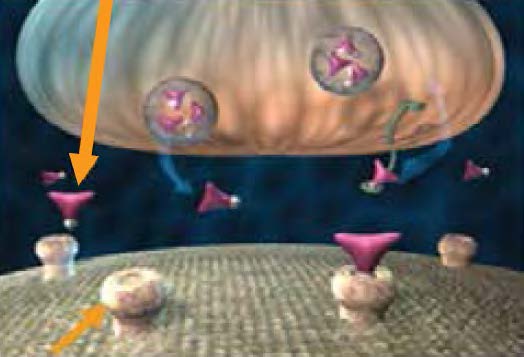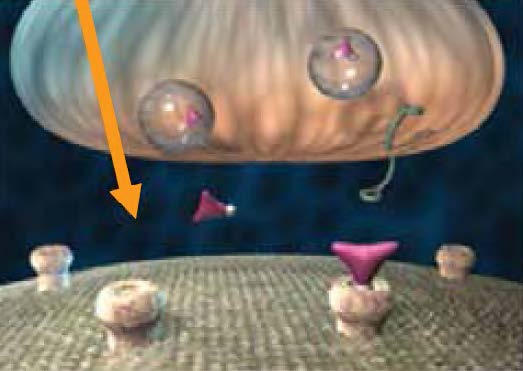How SSRIs deplete serotonin

A hyposerotonergic condition or state occurs when serotonin concentrations are not enough, low, inadequate, depleted, deficit, deficient, or suboptimal on a modified normal diet. This represents inadequate nutrients required by the body to make enough serotonin.
Platelets contain 99% of whole blood serotonin. SSRI drugs block reuptake into the platelets and pre-synaptic neurons which have identical transporters. When the concentration shifts to outside the neuron or platelet, serotonin is exposed at an increased rate to the monoamine oxidase (MAO) which accelerates serotonin metabolism leading to depletion even on a modified normal diet.
Figure 1: On the normal diet, low or depleted serotonin concentrations represent the inability of the modified normal diet to meet the needs of the body.
Figure 2: Reuptake inhibition (yellow airplane) blocks reuptake, causing serotonin concentration movement from the pre-synaptic neuron or platelet into the synapse.
Figure 3: The serotonin molecules, while in the pre-synaptic neuron or platelet, are safe from enzymatic metabolism by the MAO and COMT systems. With extracellular redistribution caused by reuptake inhibition, there is increased metabolism (depletion). The only way for the body to make (synthesize) the serotonin molecules it needs is to give special nutrients that are beyond the capability of the modified normal diet.
Nutrients need to be given in proper balance; administering only the nutrients that the body needs to make serotonin can deplete dopamine, glutathione, and related systems.


Figure 2: Reuptake inhibitors (orange arrow) increase synaptic serotonin or dopamine.

Figure 3: Increased synaptic (outside the neuron) serotonin or dopamine contact with the MAO and enzymes may induce serotonin or dopamine depletion.